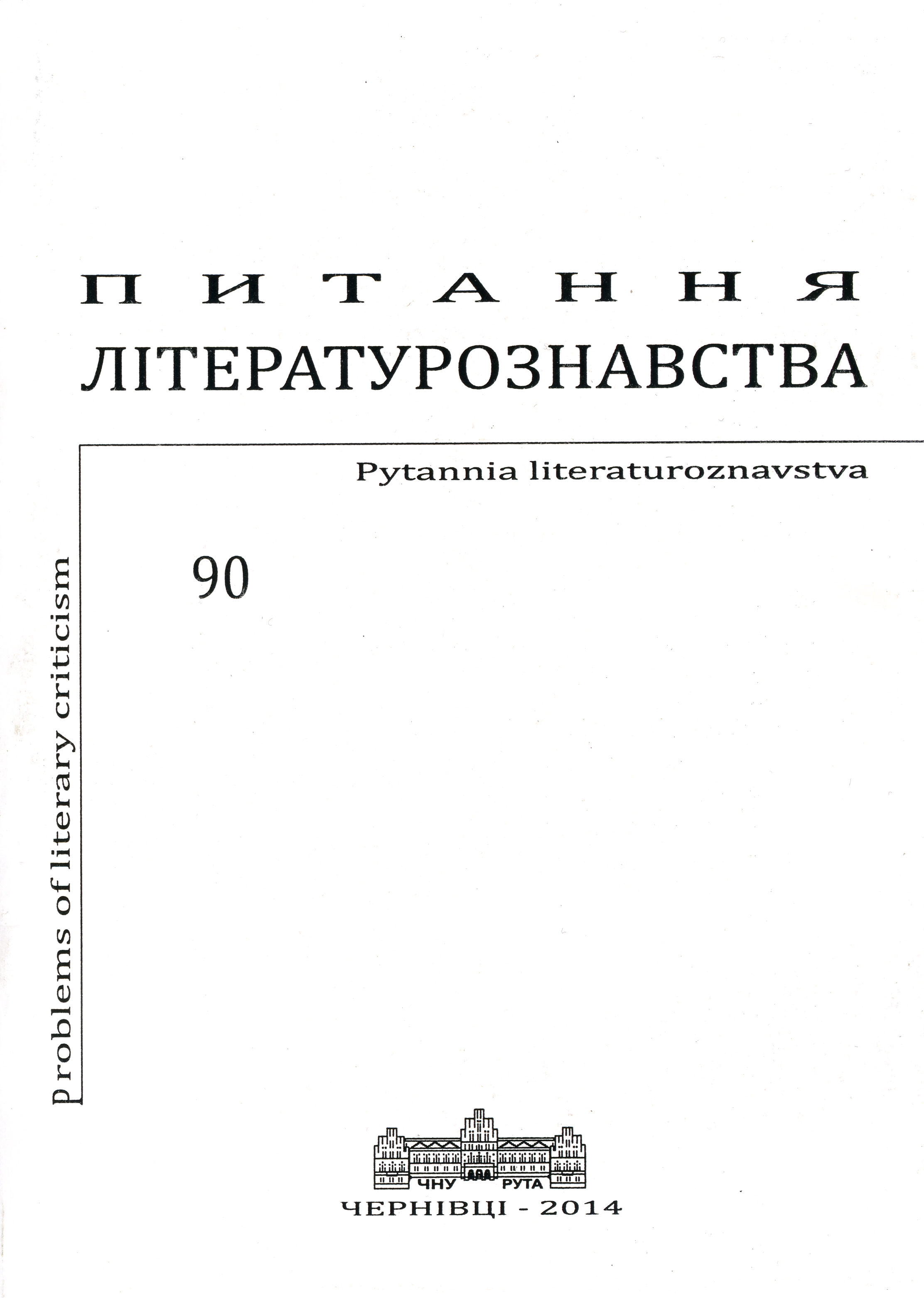Екзистенційні акценти типології вигнанця
Existential Emphasis of Typology of an Exile
Author(s): Yulia VilchanskaSubject(s): Language and Literature Studies, Studies of Literature, Comparative Study of Literature, Russian Literature, Ukrainian Literature, Theory of Literature
Published by: Чернівецький національний університет імені Юрія Федьковича
Keywords: Boris Poplavsky; Yevhen Malaniuk; exile; “otherness”; “literature in exile”.
Summary/Abstract: The given article treats the creative work of two emigrant poets Yevhen Malaniuk (Ukrainian diaspora) and Boris Poplavsky (Russian diaspora). The study concerns the transformation of biographical experience in a trope. “Emigrant's state” of both poets acts as an internal factor of their selfidentification. The ontological potential of texts is read in the context of the theme, the status of “exile” (the new scientific paradigm, which defines the situation related to expatriation). Exile generates a specific form of culture, since emigration certainly makes the writer marginal against the new (Another), not yet accepted (or not accepted at all) culture. We need to understand how a creative personality reacts to such changes and how adaptation / not adaptation to the “new life” influences on the creative work. The impossibility of fit into the new world guides the artist to his own inner space. A comparison of two, supposedly completely different poets, as B. Poplavsky and Y. Malaniuk is not paradoxical, considering the commonality of the key moments in the biographies of both former compatriots and in fact peers: it is a saving escape from the Bolshevik reality and implicitation in another society. There is every reason to consider it as common denominator of the typology of exile in general. The artists draw closer together typologically by devotion to their own national culture, their poetic purpose, the coherence of their common theme of exile, the imitation of the modernist tradition of new poetic writing, which indicates a comparative analysis of their heritage. Exile gives not only the theme but also distorts the worldview of the artist trying his existence. The influence of logic of the marginal consciousness of an exile poet on the trope lyrics system is also analysed. The theme of “paradise lost” is read from a special existential viewpoint.
Journal: Питання літературознавства
- Issue Year: 2014
- Issue No: 90
- Page Range: 266-277
- Page Count: 12
- Language: Ukrainian

